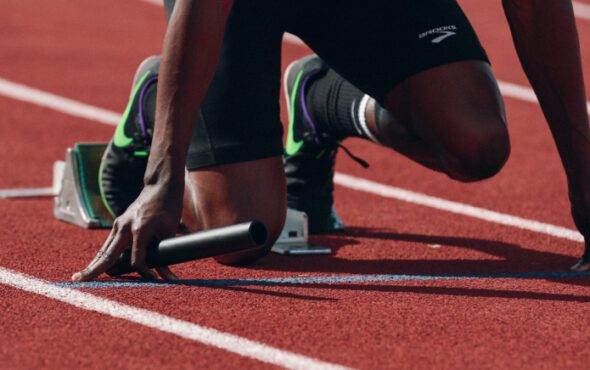
New guidance suggests creating “open” and “universal” categories could be the way to include transgender people in sport.
The Sports Councils Equality Group (SCEG) says “for many sports, the inclusion of transgender people, fairness and safety cannot co-exist in a single competitive model”.
As such, the wide-ranging review concluded that current policies will require a complete overhaul to become more inclusive.
New formats should find “innovative and creative ways to ensure nobody is left out”.
The guidance continues: “In order to survive and thrive in the future, sport must adapt to reflect modern society, and that often, it is too slow to do so.
“Sport must be a place where everyone can be themselves, where everyone can take part and where everyone is treated with kindness, dignity and respect.”
Community sport up to a national level is covered by the report, though it will be up to governing bodies for each one to decide if they will opt for “competitive fairness”.
The guidance suggests that contact, collision and combat sports (or anything based on strength) will need to prioritise safety and should create “universal admission” categories for transgender athletes.
Sport England, Sport Scotland, Sport Northern Ireland, Sport Wales and UK Sport worked together to create the guidance after an 18-month consultation on current research.
Part of the guidance says “testosterone suppression is unlikely to guarantee fairness between transgender women and natal females in gender-affected sports” and there are “retained differences in strength, stamina and physique between the average woman compared with the average transgender woman or non-binary person registered male at birth”.
The councils who made the guidance have no authority in ensuring it is enforced, though it is expected that most governing bodies will follow it.
Most sports currently use the International Olympic Committee (IOC) guidelines from 2015 to determine how trans competitors participate in sport.
They suggest that trans women can compete in female sport if they suppress their testosterone levels below 10nmol per litre, which is how it was possible for weightlifter Laurel Hubbard to become the first out transgender female competitor to compete in a solo event at an Olympic Games at Tokyo 2020.
The IOC recently delayed its new transgender guidelines for sport, with their release now expected after next year’s Beijing Winter Olympics in February – three years after they were first planned to as a result of “very conflicting opinions”.
Dr Richard Budgett, the IOC’s science and medical director, shared the updated timeline for the guidance, explaining that it will “prioritise inclusion” and “avoidance of harm”.



